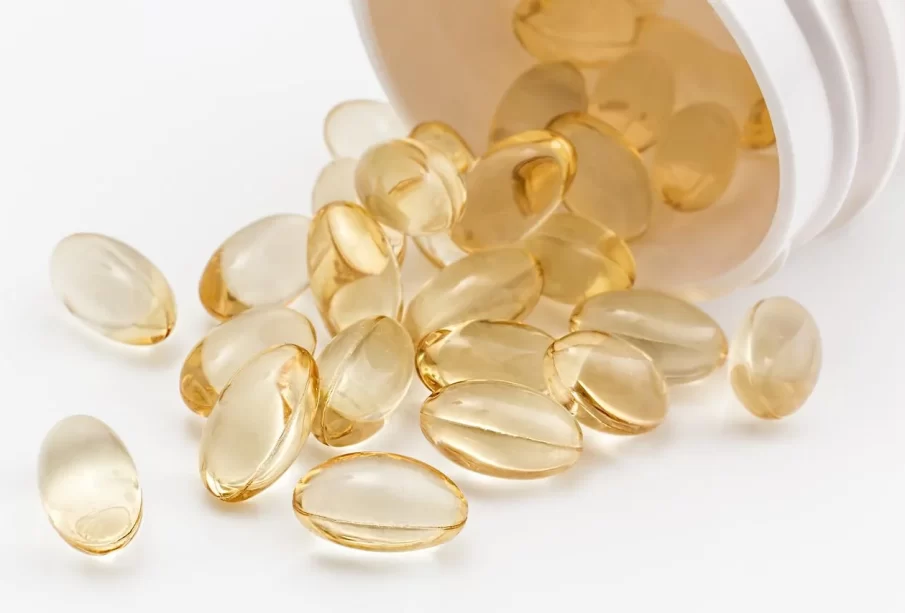Why is it Important For Kids to Take Vitamins

One of the reasons physicians advise patients to have well-balanced meals is to guarantee that their patients get all the vitamins and minerals they need to be healthy. If your child’s diet is unbalanced, he or she may develop a vitamin deficiency. Unfortunately, inadequacies of this kind may have severe and lasting implications over time for Important For Kids.
Table of Contents
Best Multivitamin For Kids
It is essential that children acquire the vitamins and minerals necessary for good health and development as they age.
A multivitamin may assist in filling nutritional gaps and ensuring that nutritional demands are met. There are various factors to consider while searching for the ideal supplement for your kid and family, including quality and safety, ingredients, important nutrients, and dosage.
Do you suspect that your kid may have a vitamin deficiency? This guide assists you in determining which items to add to your child’s diet in order to address health issues. You can get yourself vitamins for kids to prevent vitamin deficiency.
How Can Vitamin Deficiency Be Prevented?
The general idea is to ensure that your youngster get nutrients from food sources initially. In cases when the diet is deficient in particular vitamins, you might turn to supplements. The daily diet of a growing kid should include enough amounts of vitamins A, B, C, D, E, K, and folic acid.
Consult a dietitian and refer to the Health Promotion Board’s Recommended Daily Allowances (RDAs) to verify that your kid is receiving the appropriate quantity of nutrients through vitamin supplements.
Certain nutrients, such as vitamin B12, are best ingested. If your youngster eats eggs, milk, and dairy products in addition to yeast extracts such as vegemite and marmite, he may not need a supplement. You may also give him foods enriched with vitamin B12, such as fortified baby soy formula and fortified morning cereals
In addition, veggies may not be excellent suppliers of vitamins B, D, and E. Other dietary categories, such as bread and cereals, milk and dairy products, meat and substitutes, and fats and oils, include greater amounts of these vitamins.
In such circumstances, you may satisfy your child’s vitamin C needs by providing him with additional fruits or fruit juices and two daily vegetable servings. Fruits and vegetables rich in vitamin C include guava, strawberry, honeydew melon, and kiwi, as well as broccoli, spinach, cauliflower, and cabbage. However, keep in mind that Vitamin C is readily damaged by heat and air. Be careful to chop your fruits and veggies shortly before consuming them, and cook your vegetables briefly.
If you are still worried that your kid is not receiving enough vitamins from his regular diet, see your physician about a multivitamin supplement for children. Please keep in mind that supplements should not be used as a replacement for a healthy and balanced diet.
However, particular vitamin supplements may be required if your kid has a unique diet due to food allergies or intolerances. Consult your pediatrician or nutritionist about the foods to offer your child.
Are Vitamins Necessary for Health- Important For Kids?
Vitamins promote growth and development in the organism. B vitamins such as thiamine (vitamin B1), riboflavin (vitamin B2), niacin, and pantothenic acid, as well as biotin, are necessary for the release of energy from food, therefore supplying fuel for everyday activities. As children age, their need for this group of vitamins increases to accommodate their increasingly active lives. A deficiency in vitamins B and C may result in anemia, which can cause fatigue and lethargy.
Vitamin D Deficiency- Important For Kids
If your kid is deficient in vitamin D, he or she may develop bone disease, liver disease, or inflammatory bowel disease. Vitamin D is required for proper bone development in children. Otherwise, your youngster may suffer from frequent bone fractures and muscular spasms.
Vitamin D is present in a variety of foods, including fortified milk, liver, egg yolk, and fish. Your youngster may also spend time in the sun to increase their Vitamin D levels.
Vitamin C Deficiency
If your kid is deficient in vitamin C, he or she may have gum bleeding. While it is typical for teeth to bleed when a youngster brushes their teeth with inflamed gums, this sort of bleeding may occur apparently at random.
Another adverse effect of Vitamin C deficiency is scurvy, which is normally only seen in extreme instances. Your kid may endure weakening muscles, frequent bruising, and a compromised immune system as a consequence of scurvy.
Fruits and vegetables give Vitamin C. Every day, children should consume several servings of fresh fruits and vegetables. Vitamin C-rich foods include broccoli, kiwi, bell peppers, and other fresh produce.
Vitamin A Deficiency
Vision difficulties are a typical side effect of vitamin A insufficiency. Your youngster may claim that it is difficult for him or her to see in dim light. In addition, your youngster may have recurrent sickness, dry eyes, and dry skin. Vitamin A is detrimental to the immune system.
Encourage a diet rich in dairy products, eggs, leafy greens, and orange vegetables such as bell peppers and carrots to enhance your child’s vitamin A consumption.
Conclusion
The scheduling of vitamin pills may rapidly become difficult to navigate. Taking many pills at various times during the day is bewildering. If taking your vitamins is such a difficult procedure, you will be less likely to do so.
The ideal answer is to avoid various supplements and stick to a multivitamin with minerals that have been professionally prepared and can be taken with breakfast or lunch.
The same idea applies to multivitamins for youngsters. Providing children with a nutritious one-a-day chewable vitamin will assist them in meeting their nutritional requirements in a manner that makes sense to them.
Children dislike taking pills, and if you ask them to take them throughout the day at various times, you will certainly encounter persistent resistance.








